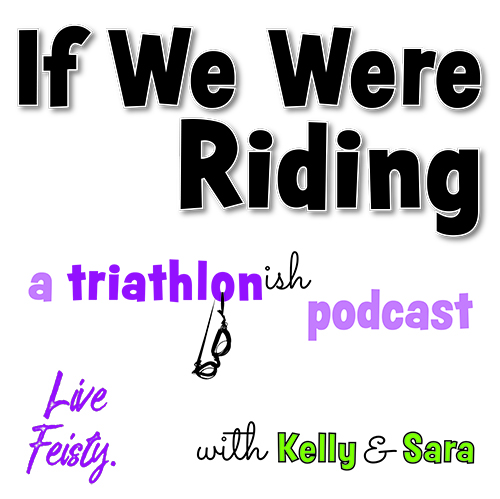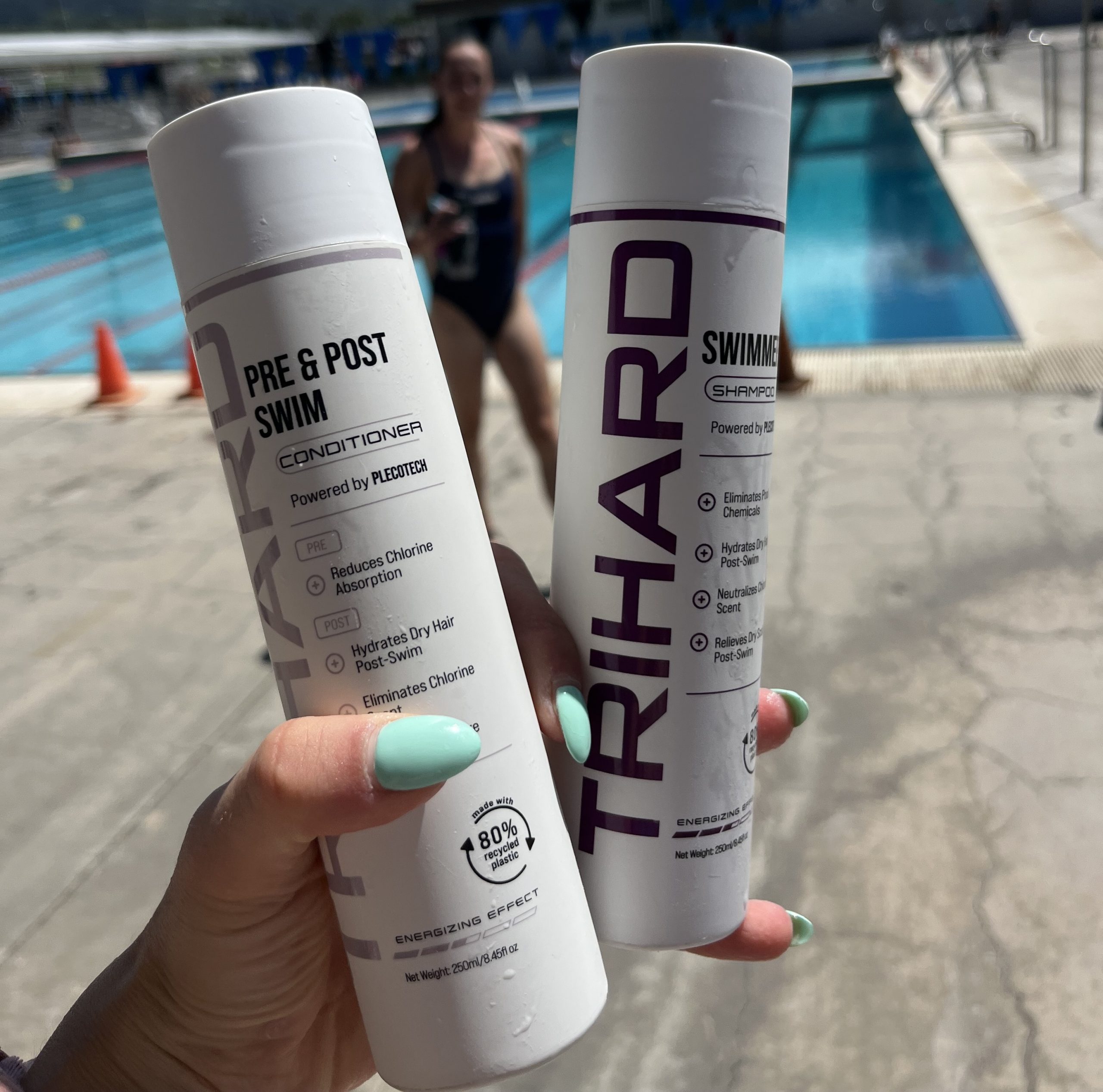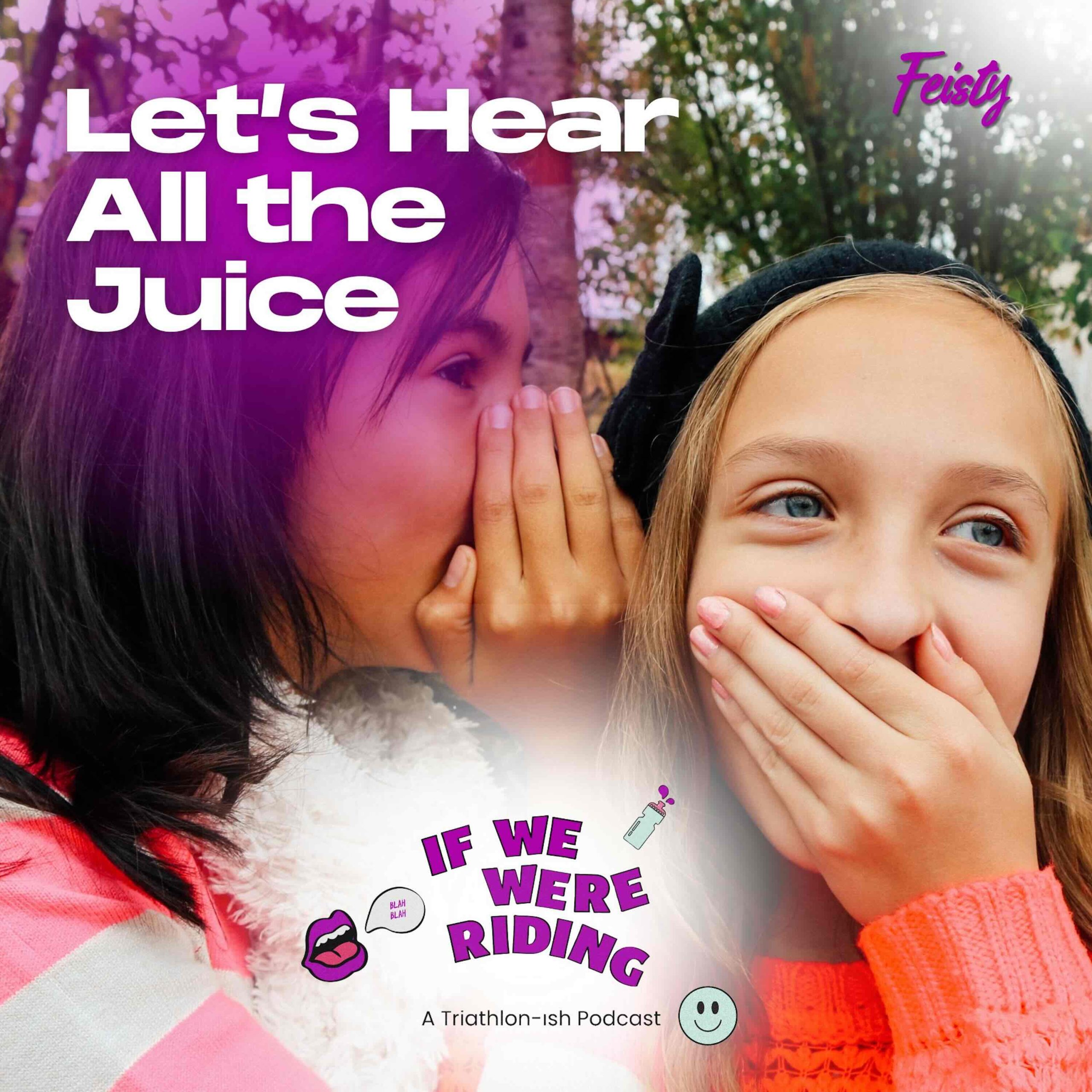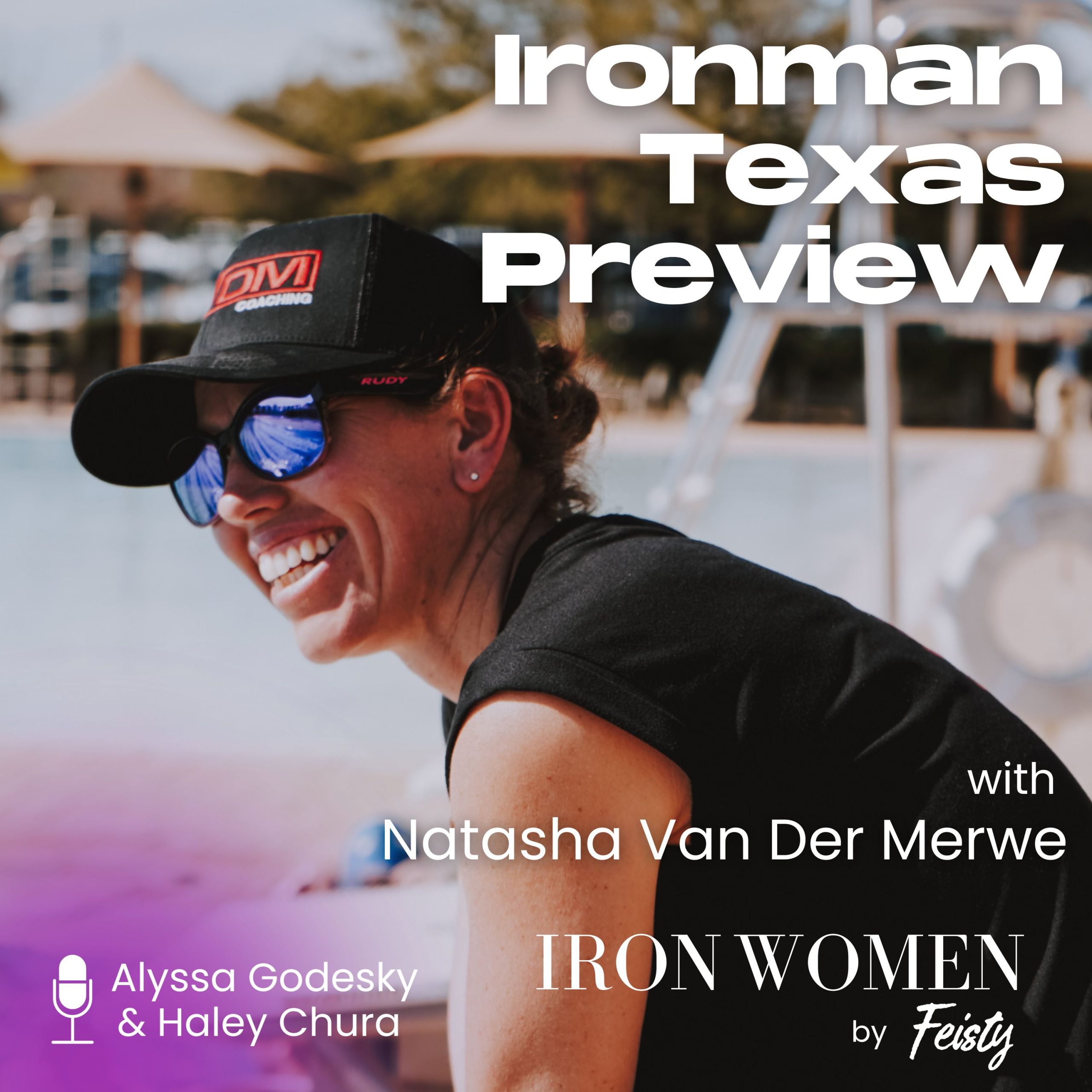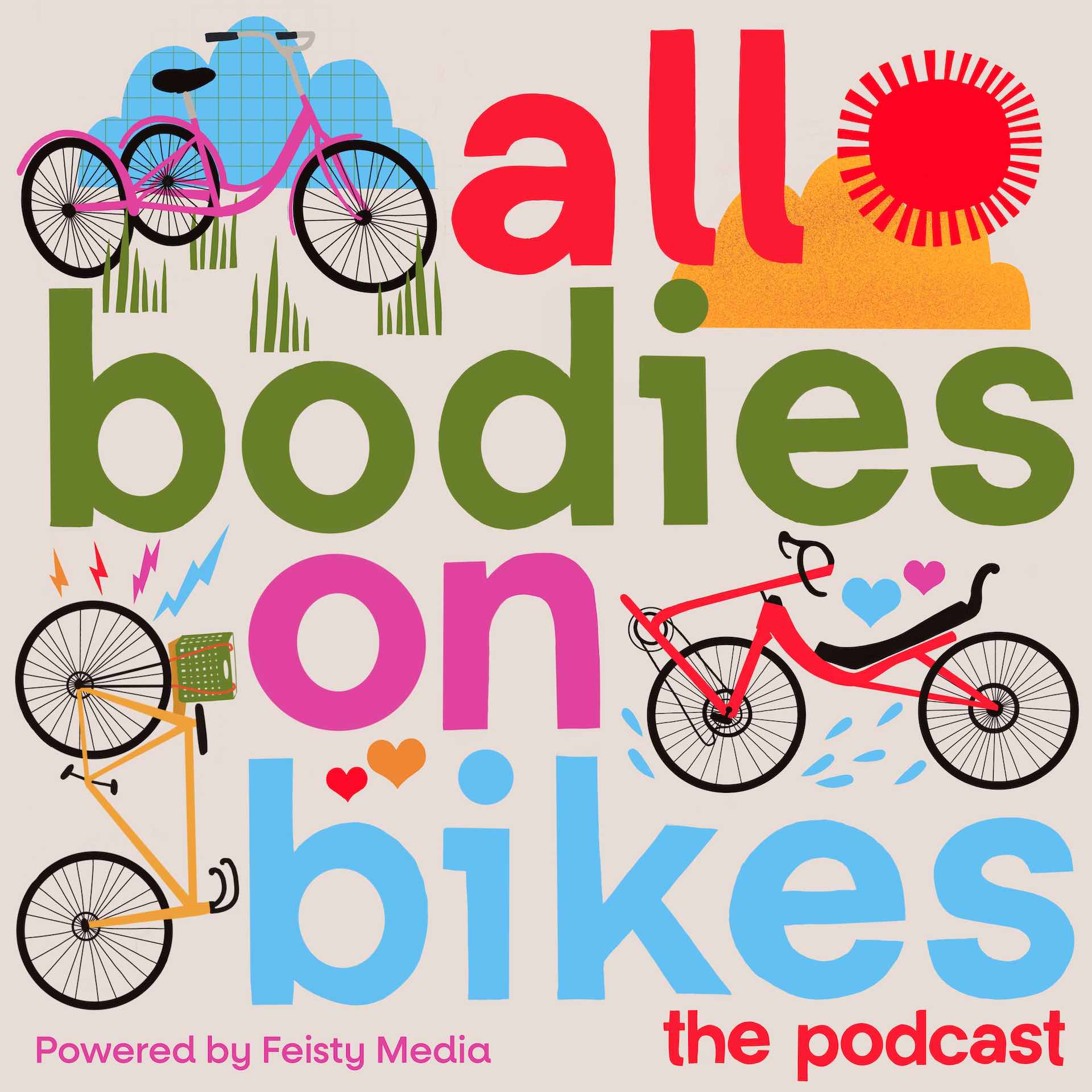April 25, 2018
Newsletter ep. 32: Let’s talk about athletes’ hearts
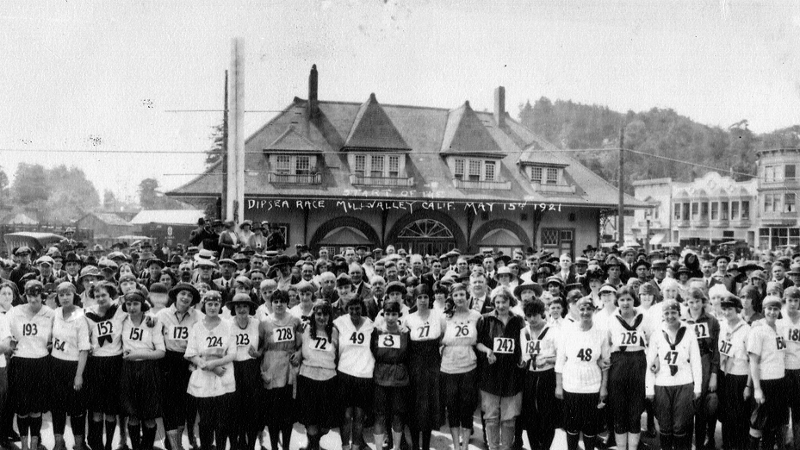
Photo: Dipsea Race Committee
‘If We Were Riding’ is a weekly triathlon-ish newsletter written by Kelly O’Mara and produced by Live Feisty Media. Subscribe to get it in your inbox every Wednesday morning. You can also read past issues. This episode is from April 25, 2018.
___________________________________
I had a treadmill workout a few days ago that was so hard, and I was so certain I wasn’t going to be able to finish, that I had simply accepted I was going to fall off. It was an inevitability. There would be a point where I couldn’t maintain the effort, and I’d slip and I’d fall off the treadmill. All I was trying to decide was how to prevent myself from getting too injured when it happened. Spoiler: I didn’t fall. I (somehow) finished the workout. And, for anyone looking on from the outside, nothing happened. But, internally, it felt like a lot happened. I made a decision and stuck to it: I wasn’t going to choose to not finish this; the choice would have to be made for me.
Sometimes I think there isn’t really any line at all between tough and stupid. I’m not completely convinced this isn’t all a little stupid. It’s just a matter of if you’re inside looking out or outside looking in. A question I feel like we’d very much discuss if we were riding this week.
A heart to heart
I’ve had a heart issue for my entire life (though it wasn’t effectively diagnosed until this past fall). It’s genetic, and it’s not super serious. It’s also absolutely not caused by training. But it’s very, very likely I would never have noticed my heart electrically misfiring at rare times if I hadn’t ever done anything physically challenging. Or, potentially, I never would trigger an electrical issue if I never pushed myself. We don’t know. And what we don’t know about athletes’ hearts is a lot.
Over the last few years, concern has increased about the damage athletes can do to their hearts. We’ve long known that “athlete’s heart” can lead to problematic enlargement of the muscle and hypertrophy in the ventricles. (We also know athlete’s heart isn’t always dangerous, though it can be.) We know it’s been hard to ignore what looks like a rising number of sudden and very public deaths among seemingly fit athletes. When I was researching other triathletes who have had the same issues I’ve had, I found a long list of people (including those who won Ironman titles after undergoing an ablation to fix their tachycardia). The sudden cardiac arrest numbers in triathlon actually appeared so high in the last few years that the sport felt the need to commission an in-depth study to figure out why. What they found: lots of the affected athletes had heart disease already, and risk goes up with age, but we still don’t absolutely know what prompts some people to have a heart episode and others not to.
[There are actually all kinds of odd and interesting factors in what can prompt a heart problem if an athlete is pre-disposed. For example, many race directors now have medics stationed at the point in a marathon when runners turn the last corner and can see the finish. There was a high correlation found between that spot and cardiac arrest. The assumption is it has something to do with a rush of adrenaline in the final stretch.]
Certainly, a part of this increased awareness comes from knowing more than we once did. We can diagnose things we didn’t used to be able to diagnose. Tools have gotten better. Life-long athletes are also participating in sports far longer into a ripe older age, which changes the equation.
But, even noting all of that, it feels impossible not to acknowledge there is some amount of risk to years worth of extreme athletic activity. If we wanted simply to optimize our heart health, we’d probably just run casually a few times per week. And it’s worth educating yourself about what puts you at risk and how to mitigate those costs. Talk to your doctor about your heart health.
Of course, though, as one heart doctor told me: “I don’t think anyone climbs Mt. Everest thinking it’ll be good for their health.” Maybe we do all these things knowing full well what we’re getting into.
RECOMMENDED READING: The Haywire Heart
How much would you pay to go to Kona?
If your answer is less than $66,100 (the current winning bid on the Ironman Kona auction at the moment I write this), then you’re SOL. The starting price on the auction, in case you were wondering, was a much more reasonable $10,000 and, well, things escalated quickly. The arguments for and against the Kona Auction—in which the Ironman Foundation takes bids for five Kona spots—are obvious, so I don’t really feel the need to reiterate them. But it’s probably not shocking I have mixed feelings about buying your way into a World Championship. However, if you are not so conflicted, then you have four more chances—this is the second of five spots to be auctioned off. All will come with a spot in the race, four VIP packages, and invitations to “exclusive race-week functions.”
Do women suffer better?
Yeah, probably. (I kid. I kid. Except not really.) We talked last week on the podcast about why women had lower DNF rates during the unbelievably shitty Boston Marathon last week. And then The New York Times examined the same question and came to a similar conclusion: there might be some physiology to it (certainly women do better at longer races), but there’s also a whole lot of sociology and psychology. It’s as if women have learned to endure for no reason other than enduring, and they’ll be damned if they’re going to quit now that they are finally allowed to start.
I saw one guy on social media harrumph the whole thing and explain that finishing was stupid anyway because it was pointless. In this case, he said, men were smarter because there was no point in running a slow time at Boston just for the sake of finishing and potentially hurting yourself. So, I think he’s saying women continued on even in the face of evident futility? Um, yeah, pretty sure life is where they learned that lesson from.
Just one more thing before we go
About Boston. I know, I know. We’ll be done after this. But tell me you don’t get a little choked up from Desi’s tweet to Molly Huddle, who had a rough race: “You’re next.” And this was a solid interview post-race with Desi from ESPN. My favorite quote, which I’m sure people will be copying and pasting and retweeting forever: “That’s why they hold the race. We don’t just submit resumes and physiological testing results and workouts. You show up and race because the day can throw anything at you.” Plus, if there’s one guy who really knows how to race the race in front of him, it was Yuri Kawauchi (who also apparently went out and raced a half-marathon this past weekend because dude does not know how to rest).
________________________________________
- The Ironman North American Championships are this weekend in Texas. And Sara and Ashley will be there, live Facebooking the whole thing.
- Plus, this weekend, the collegiate championships go off in Tuscaloosa. (Yes, they’ve changed a lot since I raced them in Tuscaloosa back in 2007, but the heart of the thing hasn’t changed too much. I hope.)
- And Super League announced its next season: all races in the fall/winter.
- We’ve been talking lately about the female athletes who are returning post-pregnancy, so shout-out to Meredith Kessler who will be back racing Texas this weekend and had this Australia Tri Mag piece written up on her—though I could have done without the weird stuff written about Americans.
- Also in triathlon podcasts you can listen to: Gwen Jorgensen did this kinda funny interview about weird foods she eats. (I fast-forwarded through the first 20 non-Gwen minutes.)
- And Sarah True freaked everyone out by tweeting some retirement advice to other pro athletes. No, she’s not retiring.
- Some of her advice is probably good for current pro triathletes too. Check out Brad Williams’ annual pro triathlon budget and expenses.
- Speaking of. It certainly had started to seem like Cervelo was dropping all its pro athletes, and now I think we know for sure that’s the case.
- How much are pro athletes worth to a brand anyway? CyclingTips had a pretty interesting breakdown using influencer measurement tools to put dollar values on athletes. I’m not totally convinced Instagrams are really selling bikes, but I’ll agree Peter Sagan is worth what he’s paid.
- Lance (as in Armstrong—sometimes I’m not sure we need last names) has to be happy he got off with having to pay just $5 million to settle his federal fraud case.
- Oh, and he’s training for Otillo Swimrun now.
- And Michael Phelps is going to spin classes now. The big question is: what are the pseudonyms he books the classes under?
- An athlete, who went missing in South Africa right before the Ironman, has been found dead in the harbor. The cause of death is still unknown.
- The Portland Marathon race director was found to have illegally borrowed hundreds of thousands from the race. He’s paid out an $865,000 settlement and been banned from organizing the race again. So what happens to the popular marathon now?
- I keep hearing about how cannabis-infused recovery products are going to be the hot new thing in sports. I’m not sold yet.
- In 1918, the insanely tough Dipsea trail race held a women’s “hike” in order to get around official bans on women running long-distance races. But those women didn’t hike the Dipsea Trail; they fucking raced it. The fastest time during the five years the hike lasted (1:12) was only about seven minutes slower than I run the race now—and they did it in heeled boots and outfits I wouldn’t even be able to walk in. After the hike ended in 1922, it was over 50 years before women were allowed to compete officially again. It’s almost like women have actually been good at sports for a long time.
If We Were Riding’ is a weekly triathlon-ish newsletter written by Kelly O’Mara and produced with Live Feisty Media. Subscribe to get it in your email inbox every Wednesday morning. You can read past issues or listen to our podcast of the same name on Fridays. If you like what you read, consider forwarding to a friend or sharing the link. You can also press reply to let me know what you think.
Subscribe to the ‘If We Were Riding’ podcast: Stitcher | iTunes | Soundcloud


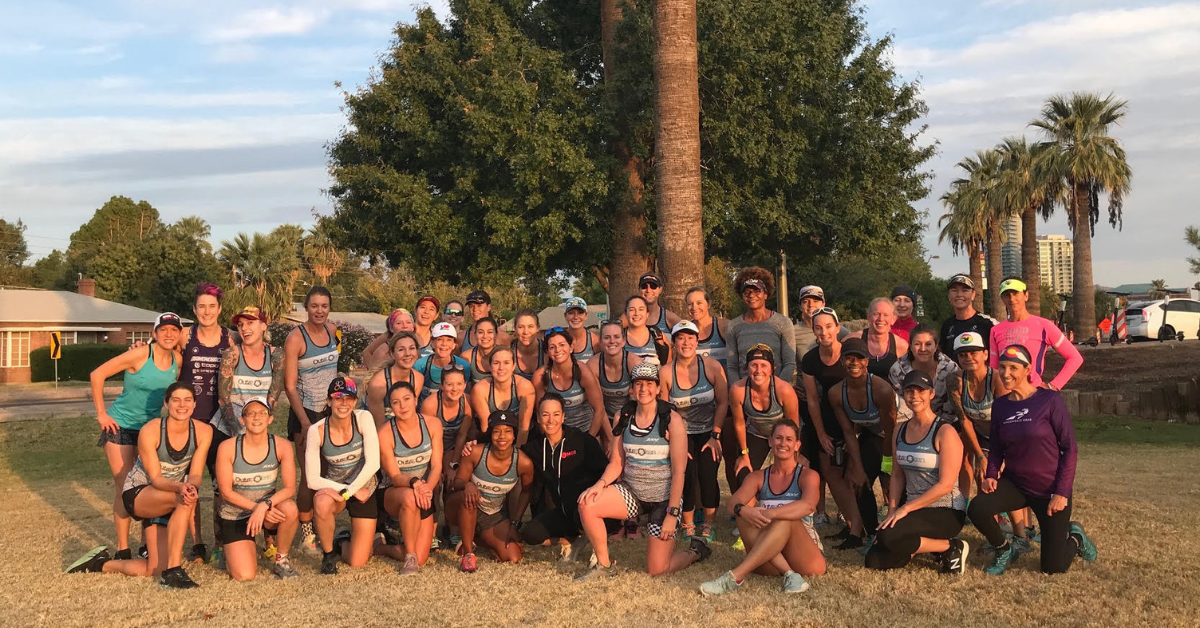 Outspoken Women in Triathlon Summit Returns Bigger than Ever
Outspoken Women in Triathlon Summit Returns Bigger than Ever  Driving the Lamborghini: Productivity and the Power of Paper
Driving the Lamborghini: Productivity and the Power of Paper 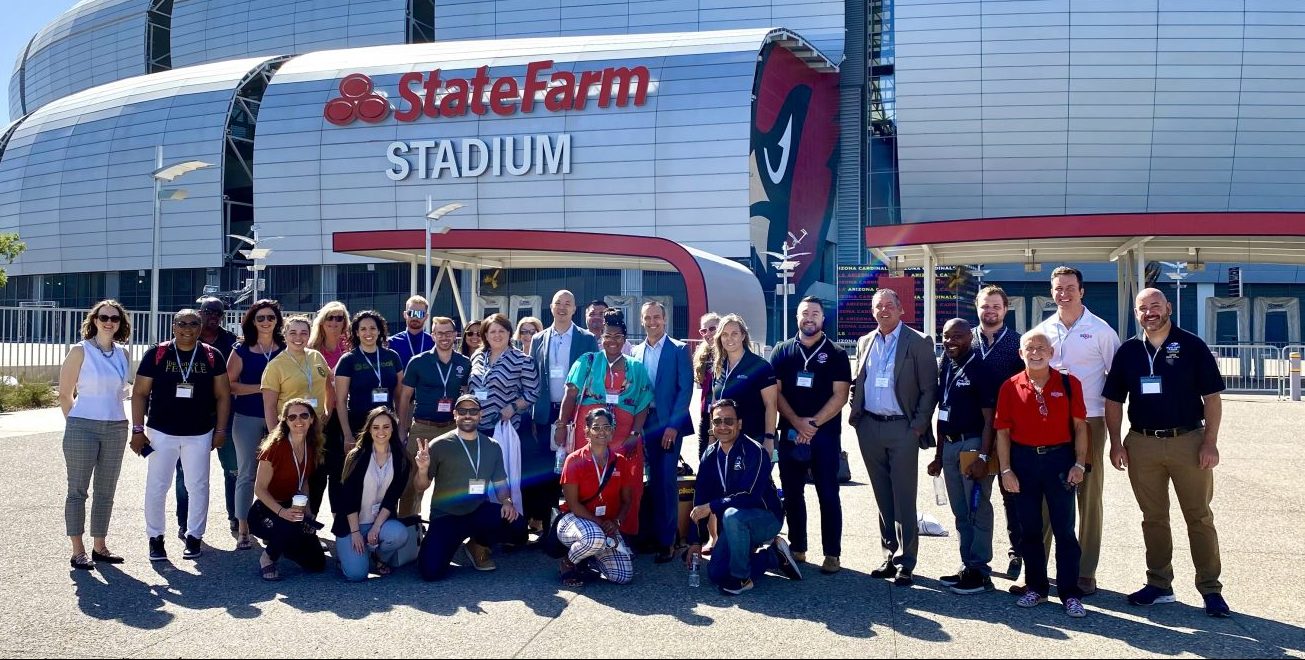 5 take aways from the Compete Sports Diversity Summit
5 take aways from the Compete Sports Diversity Summit  Simple Tips to Hone Your Bike Handling Skills
Simple Tips to Hone Your Bike Handling Skills 
